January 24, 2022
Amnesty International released a report reviewing Part 4 of the Irish Criminal Law (Sexual Offenses) Act, enacted in 2017. The provision introduced amendments to the previous sexual offenses law, passed in 1993, criminalizing the purchase of sex, living on the earnings of prostitution, and brothel-keeping, significantly increasing the penalties for the latter. Through interviews with 30 different Irish sex workers, and 13 civil service representatives, academics, and practicing medical doctors, Amnesty’s report examines the repercussions of the criminalization of sex work in Ireland, even after the sale of sex has been nominally decriminalized.
The report finds that sex workers in Ireland still fear for their safety due to the indirect criminalization of activities associated with sex work, stigmatization, and a lack of access to critical resources such as housing. Amnesty has determined that the conditions of sex workers under the 2017 law violate the Istanbul Convention, which Ireland joined in 2019. The convention requires member states to “effectively protect everyone’s, in particular women’s, right to be free from violence without discrimination, through, among other things, ‘abolishing laws and practices which discriminate against women.’” Amnesty’s research demonstrates that Ireland’s law criminalizing the purchase of sex, and increasing penalties for brothel-keeping and living off the earnings of sex work, has severely compromised the safety of sex workers, particularly for those with intersecting vulnerabilities including race, gender, drug use, homelessness, and migrant status.
Ireland’s law follows the increasingly popular, but misguided belief that decriminalizing the sale but not the purchase of commercial sex and thus seemingly “targeting buyers” will “end demand” for commerical sex, putting an end to sex work. Proponents of this model, often called “End Demand,” the “Nordic/Swedish Model,” the “Equality Model” or the “Entrapment Model,” claim that the same health and safety benefits that are realized under the full decriminalization of sex work can be achieved while maintaining criminal penalties for buyers, though this is untrue.
As has been observed in Sweden, Norway, Canada, and other countries where this model has been implemented, Amnesty’s report demonstrates the harms of “End Demand.” Under this policy, Irish sex workers are still subject to violence and discrimination when seeking resources. They see the Irish police force, the An Garda Síochána, as a threat rather than a resource, even though they are not technically committing a crime. The criminalization of prostitution-related crimes like brothel-keeping has a “chilling effect”1 on sex workers’ ability to exercise their human rights and operate safely, as sex workers still fear arrest if they work together, though this is one of the main ways to protect their safety. Sex workers routinely reported that they had been forced to engage in riskier practices since the law passed and 23 out of 30 interviewees had experienced multiple forms of violence. Interviewees’ experiences included physical attacks and threats; sexual assault, including rape; robberies; stalking; verbal abuse and harassment, including online.
Sex workers also face extreme challenges in acquiring and maintaining housing. According to a 2021 report by the Irish Human Rights and Equality Commission, concerns about the lack of available and affordable housing, including social and emergency housing in Ireland have been growing in recent years. Provisions criminalizing “living off the earnings of prostitution” allow landlords to be fined and prosecuted for renting to sex workers. Given the scarcity of housing, this dynamic contributes to increasingly stringent and dangerous living conditions for many sex workers.
These risks are not distributed equally. Sex workers face intense stigma, combined with an adversarial relationship with the Gardai, leading to impunity for anyone who might wish to harm them. Interviewees routinely cited deeply entrenched negative and patriarchal societal attitudes and prejudice directed at sex workers. These attitudes were intensified by intersecting forms of discrimination based on race, gender and gender identity, socio-economic circumstances, migration status, and/or drug use.
Sex workers and service providers agreed that decriminalization is necessary to protect the safety and health of Ireland’s sex workers, particularly those with intersecting vulnerabilities. The report highlights that people engage in sex work for many different reasons, under a variety of circumstances. Many are either receiving government aid or working in other sectors and turn to sex work to supplement their income and support their families. For migrants, transgender individuals, or others who might face discrimination in other labor sectors, sex work might be one of their only viable work options. Decriminalization is the only legal model that has been shown to reduce rates of violence against women, instances of STIs, exploitation in the sex trade, and increase access to critical resources, all of which Ireland’s current model has failed to do.
“Equality Model” bills have been proposed in various states across the United States in the 2022 legislative session, including Hawaii, New York, and Massachusetts. Though these laws may seem well-intentioned, they do not benefit sex workers and make sex work dangerous. For the sake of those who are the most vulnerable to violence and abuse, we must adopt decriminalization and make laws based on evidence rather than ideology.
________________________
1 For the purposes of international human rights law, a “chilling effect” is defined as “the negative effect any state action has on natural and/or legal persons, and which results in preemptively dissuading them from exercising their rights or fulfilling their professional obligations, for fear of being subject to formal state proceedings which could lead to sanctions or informal consequences such as threats, attacks or smear campaigns.”
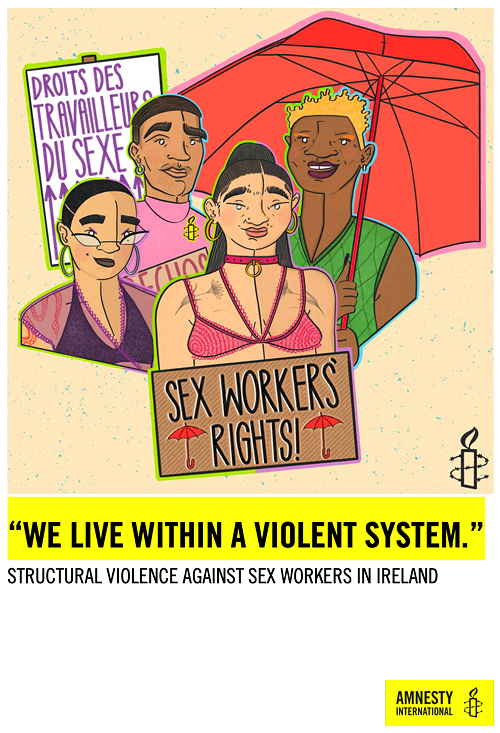
(Amnesty International, 2022)
DSW Newsletter #33 (February 2022)
DSW Releases Groundbreaking Report on Sex Work and Human Trafficking in New York State
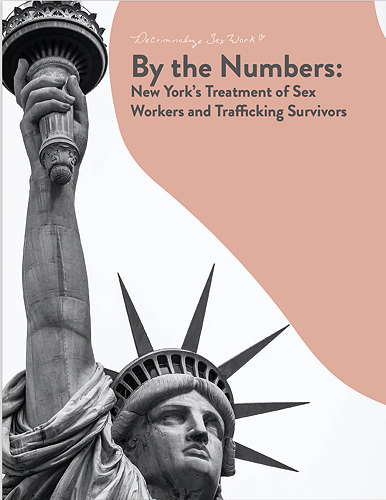
The EARN IT Act Threatens Free Speech and Sex Worker Rights
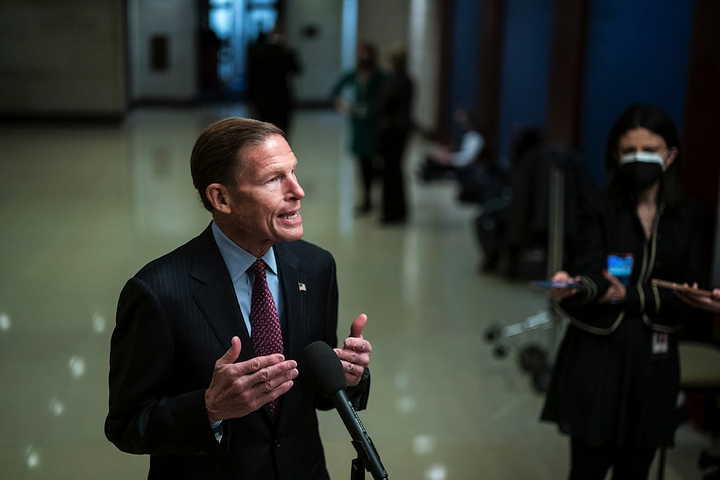
A Constitutional Right to Sex Work
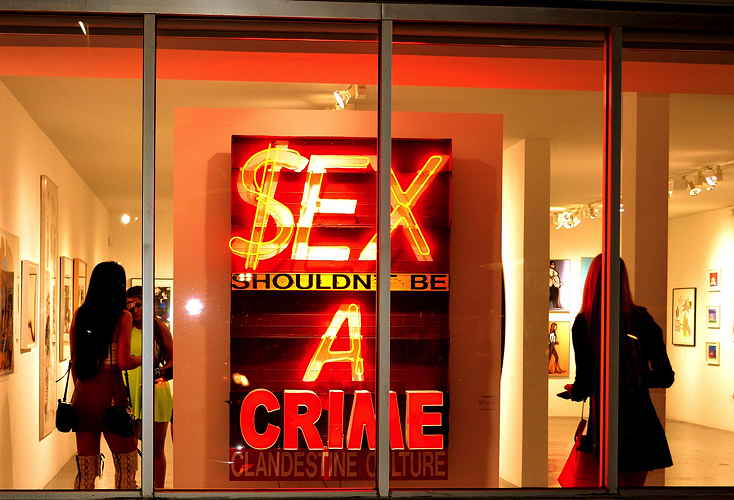
Victoria Becomes Australia’s Third State to Decriminalize Sex Work
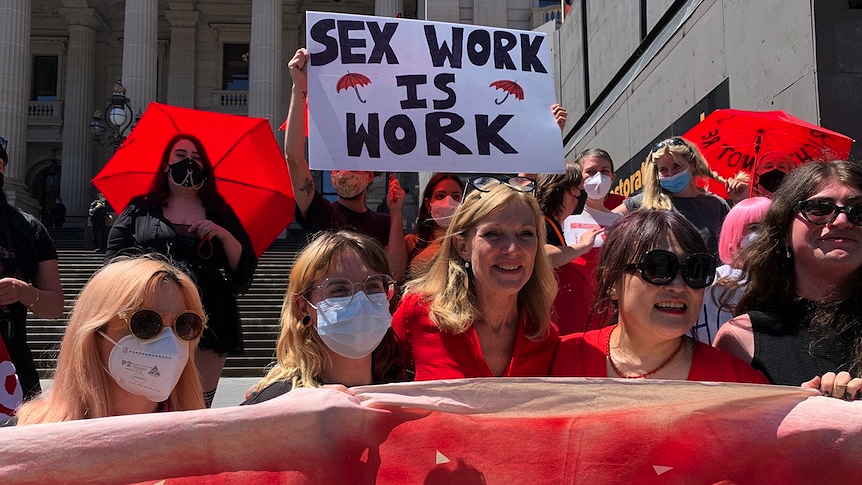
Chilling Effects: Amnesty International reports on Ireland’s 2017 End Demand Law

Maya Angelou, Sex Worker and Hero

